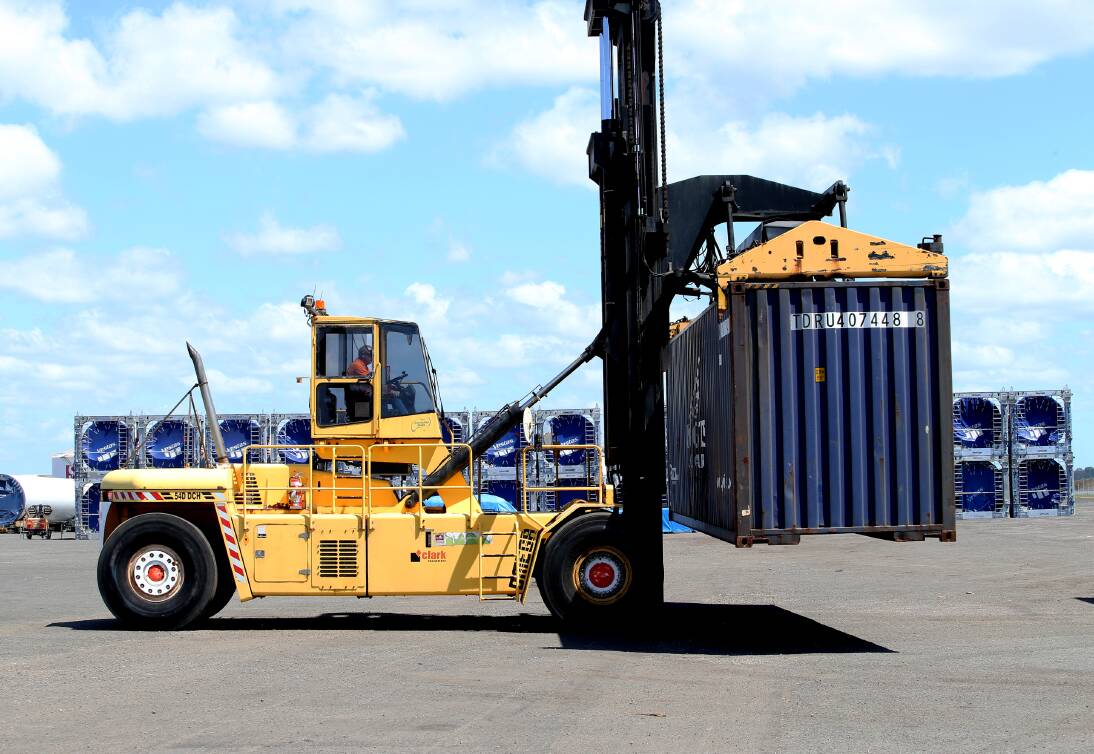
An expert panel reviewing the state's freight and ports policy will take into account a pricing tribunal ruling last week which opened the path to a Newcastle container terminal.
The advisory panel, led by former investment banker Dr Kerry Schott, has been working since January on Transport for NSW's freight and port policy reform program.
The NSW government's "three ports" planning policy prioritises developing Port Kembla over Newcastle as the state's second container port after Port Botany.
An Independent Pricing and Regulatory Tribunal ruling on Friday will allow Port of Newcastle to pay the state government $13 million to unlock controversial penalties which it says have stopped it investing in a $2.4 billion freight terminal at Mayfield.
Asked on Wednesday whether the IPART ruling meant the government was ready to scrap the ports policy, a Transport for NSW spokesperson said: "Immediate priorities for the reform's advisory panel will include considering IPARTs determination of compensation to be paid by the Port of Newcastle for increasing container operations as part of NSW port policy.
"The government needs to ensure the policy settings support the objective of providing an efficient freight transport network for the benefit of the people of NSW."
The reform program will identify short-, medium- and long-term actions the government can take to improve freight movements across NSW.
Transport for NSW said the panel's "consultation report" would be released soon.
Treasury last month released a Deloitte report commissioned at the time of the ports' privatisation 10 years ago which suggested the state could be liable for compensating Botany and Kembla operator NSW Ports between $600 million and $4.3 billion without the container penalties in place.
Dr Schott told the Australian Financial Review on Tuesday that the effect of the container penalties "may not be as bad as some people might like to imagine" because big container ships were unlikely to stop in more than one port in Australia.
Port of Newcastle says the proposed container terminal is crucial for its commercial future and the Hunter's economic prospects as the region transitions away from coalmining.
Committee for the Hunter chief executive Alice Thompson said the state government should remove policy "barriers" to economic development in the Hunter.
"The Hunter not only contends with the usual lack of focus and funding relative to cities that is the lot of a region," she said.
"Our story is not just one of neglect.
"Barriers have been further imposed that depressed the Hunter's potential and growth, making that uphill climb even steeper.
"The secret decision to limit container trade at Port of Newcastle is an exemplar."
Ms Thompson said removing the "own goal" of constraining the port's development had taken five years, and it could take the port operator another seven years to build a container terminal.
"It's well beyond time to get moving, and we are now focused on supportive NSW infrastructure and planning policy that enables, rather than throwing more gravel in the path of the port and Hunter's development," she said.
"This is not just a matter of port-to-port turf wars.
"A $66 billion economy in transition makes economic and trade diversification an urgent imperative for the Hunter, NSW and the nation."
The Newcastle Herald reported on Wednesday that the NSW government was keeping on hold the sale of the 52-hectare Intertrade site next to the proposed container terminal.
The port has tried to buy the land to support the container terminal project.







